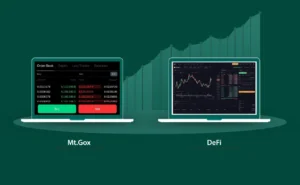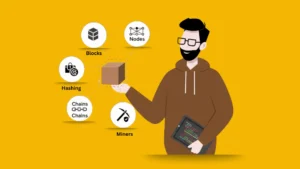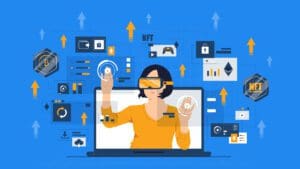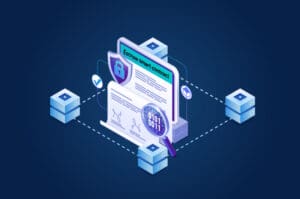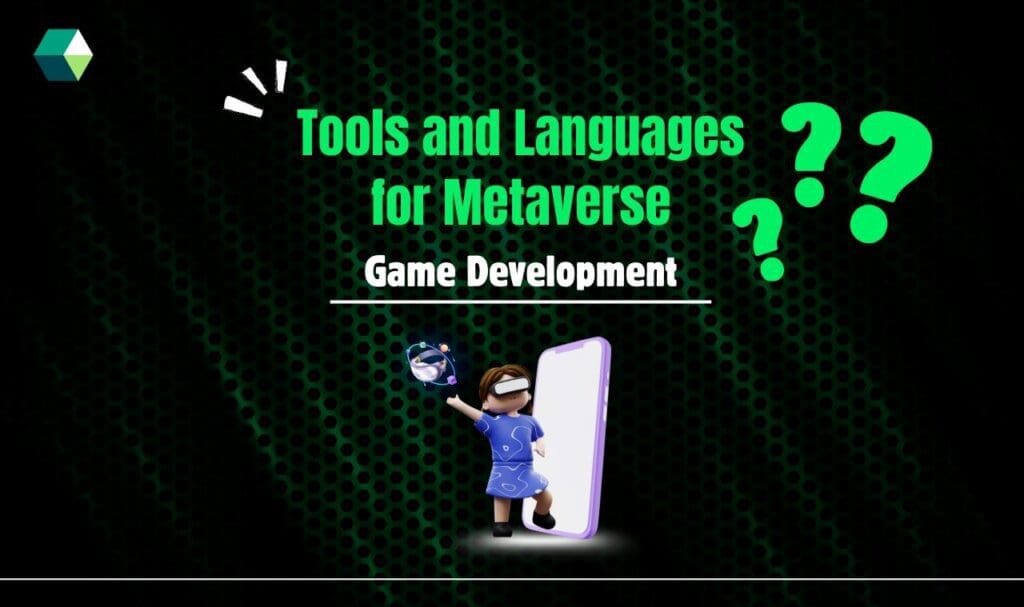
Metaverse Game Development represents the convergence of virtual reality (VR), augmented reality (AR), blockchain technology, and social interaction within a persistent virtual universe. This revolutionary approach to gaming is redefining the boundaries of digital interaction, allowing users to immerse themselves in dynamic, interactive environments. Metaverse Project Development are at the forefront of this transformation, creating intricate worlds where users can interact, create and engage in new and meaningful ways.
Importance of Tools and Languages in Metaverse Game Development
The tools and programming languages used in Metaverse game development are the backbone of creating these immersive virtual environments. They enable developers to build robust, scalable, and highly interactive games. Selecting the right tools ensures that developers can handle complex game mechanics, generate realistic graphics, secure transactions, and provide seamless user experiences.
Essential Tools for Metaverse Game Development
Game Engines
Game engines are critical for building and rendering the virtual worlds of the Metaverse. They provide the necessary tools and frameworks to create detailed and interactive environments.
-
Unity
Unity is one of the most popular game engines used by Metaverse Developers. Its versatility and cross-platform capabilities make it an ideal choice for creating immersive VR and AR experiences. Unity supports a wide range of platforms, including VR headsets, mobile devices, and web browsers, making it a versatile tool for developers.
-
Unreal Engine
Known for its high-fidelity graphics and extensive toolset, Unreal Engine is another top choice for Metaverse Game Development . It offers a powerful suite of tools for creating realistic environments, advanced physics simulations, and complex animations. Unreal Engine’s Blueprint visual scripting system also allows developers to prototype and build gameplay mechanics without extensive coding.
-
Godot
Godot is an open-source game engine that offers flexibility and community support. It’s particularly appealing to indie developers and smaller studios due to its zero-cost licensing and comprehensive feature set. Godot supports both 2D and 3D game development, making it a versatile option for Metaverse projects.
Virtual Reality (VR) and Augmented Reality (AR) SDKs
SDKs for VR and AR are essential for integrating immersive experiences into Metaverse games.
-
Oculus SDK
The Oculus SDK enables developers to integrate their games with Oculus devices, such as the Oculus Rift and Oculus Quest. It provides tools for handling VR-specific input, rendering, and tracking, allowing developers to create highly immersive VR experiences.
-
ARKit and ARCore
ARKit (by Apple) and ARCore (by Google) are SDKs for creating AR experiences on mobile devices. These tools provide developers with the ability to create interactive AR applications that blend the digital and physical worlds. ARKit and ARCore offer features such as motion tracking, environmental understanding, and light estimation, making it easier to develop AR content for iOS and Android devices.
Blockchain Integration Tools
Blockchain technology plays a significant role in the Metaverse, particularly in the areas of digital ownership and secure transactions.
-
Ethereum Blockchain
The Ethereum blockchain is widely used for developing smart contracts and decentralized applications (DApps). Solidity, the programming language for Ethereum, enables developers to create complex smart contracts that can govern transactions and interactions within the Metaverse. These smart contracts are essential for creating and managing NFTs (Non-Fungible Tokens), which represent digital ownership of in-game assets.
-
NFT Marketplaces
Platforms like Open Sea provide marketplaces for trading NFTs. Integrating with these marketplaces allows Blockchain Metaverse Development to create economies where users can buy, sell, and trade digital assets. NFTs enable true ownership of in-game items, giving players the ability to transfer and monetize their assets outside the game environment.
-
Decentralized Storage Networks
Decentralized storage solutions, such as the Inter Planetary File System (IPFS), are crucial for storing and distributing game assets securely. IPFS provides a distributed file system that allows for efficient and secure storage of large amounts of data. This is particularly important in the Metaverse, where users generate vast amounts of content that need to be stored and accessed reliably.
3D Modeling and Animation Software
Creating realistic and engaging 3D assets is a cornerstone of Metaverse game development.
-
Blender
Blender is an open-source 3D modeling and animation software that offers a comprehensive suite of tools for creating detailed 3D assets. It supports modeling, rigging, animation, simulation, rendering, compositing, and motion tracking, making it a powerful tool for Metaverse developers.
-
Maya
Maya is an industry-standard tool for high-quality 3D modeling and animation. It is widely used in the gaming, film, and animation industries for its robust feature set and professional-grade capabilities. Maya offers advanced tools for character rigging, animation, and visual effects, making it a valuable asset for creating complex and realistic game assets.
-
ZBrush
ZBrush specializes in sculpting and detailing 3D characters and objects. It allows artists to create highly detailed and intricate models with a high level of precision. ZBrush is particularly useful for creating lifelike characters and detailed environments in the Metaverse.
Collaboration and Project Management Tools
Effective collaboration and project management are essential for the successful development of Metaverse games.
-
GitHub
GitHub is a version control and collaboration platform that allows developers to manage and share code repositories. It provides tools for tracking changes, collaborating with team members, and managing codebase versions. GitHub’s integration with other development tools and services makes it an indispensable tool for Metaverse developers.
-
Trello and Jira
Trello and Jira are project management tools that help teams organize tasks, track progress, and manage workflows. Trello offers a visual Kanban board system that is easy to use and adaptable to various project management methodologies. Jira, on the other hand, provides a more comprehensive suite of tools for agile development, including issue tracking, sprint planning, and reporting.
Programming Languages for Metaverse Game Development
-
C#
C# is the primary programming language used with Unity, making it essential for Metaverse Game Developers who choose this engine. C# is a versatile language that is well-suited for developing game logic, interactions, and artificial intelligence (AI). Its strong typing and object-oriented features make it a reliable choice for building complex and scalable games.
-
C++
C++ powers Unreal Engine, providing developers with performance optimization and low-level control over game mechanics. C++ is known for its efficiency and speed, making it ideal for developing high-performance games with advanced graphics and physics simulations. Metaverse Developers using Unreal Engine rely on C++ to create immersive and responsive experiences.
-
JavaScript and TypeScript
JavaScript and TypeScript are essential for web-based AR experiences and front-end development. JavaScript is widely used for creating interactive web applications, while TypeScript adds static typing to JavaScript, enhancing code quality and maintainability. These languages are particularly important for Metaverse developers who focus on creating browser-based experiences and integrating web technologies into their games.
-
Solidity
Solidity is specifically designed for developing smart contracts on the Ethereum blockchain. It enables developers to create decentralized applications and manage digital assets securely. Solidity is crucial for Metaverse developers who want to incorporate blockchain technology into their games, enabling features such as NFT creation, in-game economies, and secure transactions.
Challenges and Considerations
Developing for the Metaverse presents unique challenges that developers must navigate to create successful and engaging experiences.
-
Scalability
Handling large user bases and persistent virtual worlds is a significant challenge in Metaverse game development. Developers must design their systems to scale efficiently, ensuring that the game can handle thousands or even millions of concurrent users. This requires robust server infrastructure, efficient data management, and optimized network communication.
-
Security
Protecting user data, in-game assets, and blockchain transactions is paramount in the Metaverse. Developers must implement strong security measures to prevent hacking, fraud, and data breaches. This includes encrypting data, securing user authentication, and ensuring the integrity of blockchain transactions.
-
Interoperability
Ensuring compatibility across different platforms and devices is crucial for providing a seamless user experience in the Metaverse. Developers must design their games to work on various VR headsets, mobile devices, and web browsers. This requires careful consideration of platform-specific requirements and the use of cross-platform development tools.
Future Trends in Metaverse Game Development
-
AI and Machine Learning
AI and machine learning are poised to play a significant role in enhancing Metaverse game development. These technologies can be used to create more realistic and responsive NPCs (non-player characters), generate dynamic game environments, and personalize user experiences. AI-driven analytics can also help developers understand user behavior and optimize game mechanics.
-
Decentralized Governance
Decentralized autonomous organizations (DAOs) are becoming increasingly important in the Metaverse. DAOs enable community-driven governance, allowing users to have a say in the development and management of virtual worlds. This decentralized approach fosters greater engagement and ownership among players, driving the growth of user-generated content and community-driven initiatives.
-
Cross-Platform Integration
The future of Metaverse game development lies in seamless experiences across VR headsets, mobile devices, and web browsers. Developers are working towards creating integrated ecosystems where users can transition smoothly between different platforms. This involves the use of cloud gaming technologies, cross-platform development frameworks, and standardized protocols for data and asset sharing.
The evolution of Metaverse Game development is driven by innovative tools, programming languages, and a collaborative ecosystem. As technologies advance, developers play a pivotal role in shaping the future of virtual reality and immersive digital experiences. By leveraging the right tools and languages, Metaverse developers can create dynamic, interactive, and scalable virtual worlds


